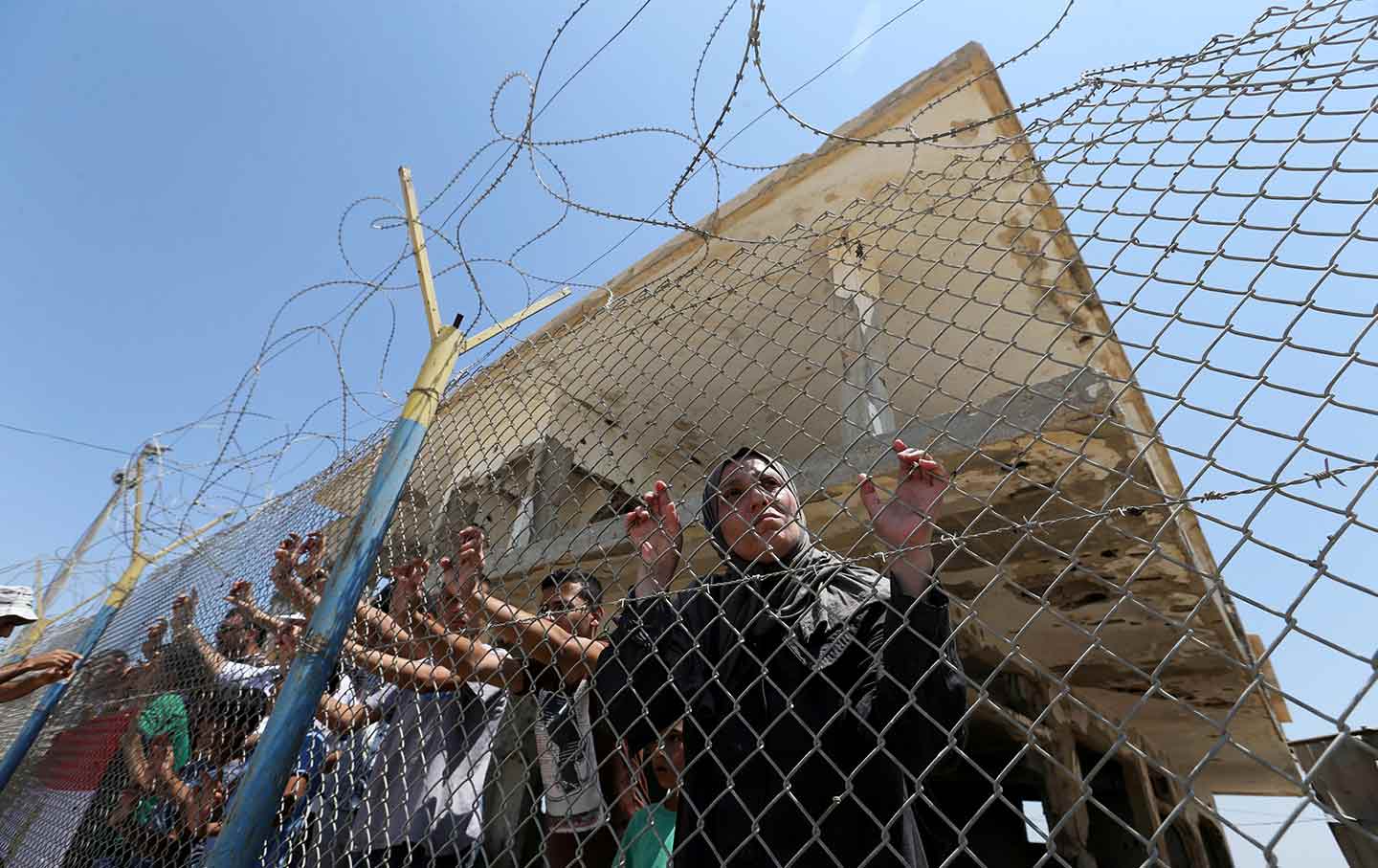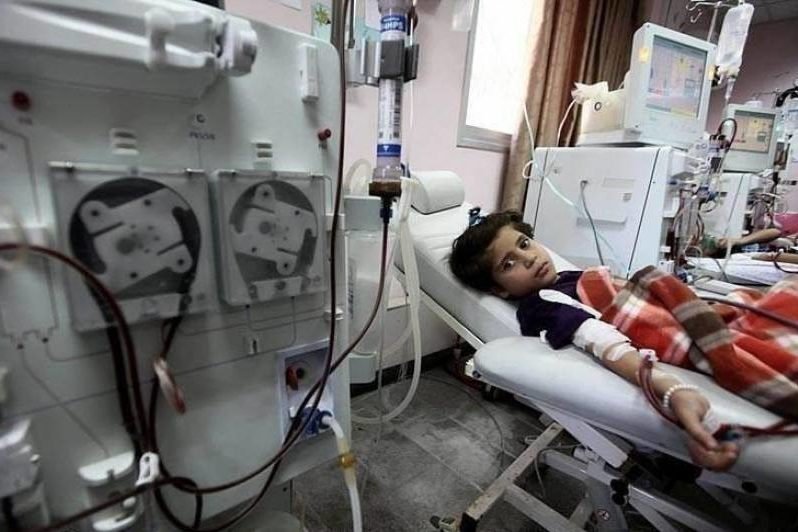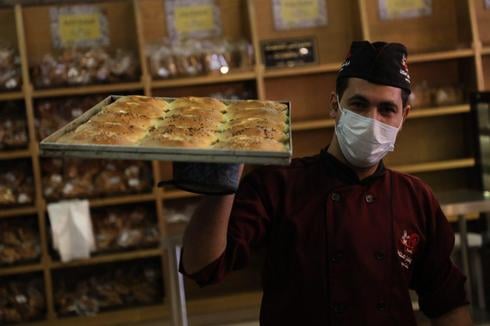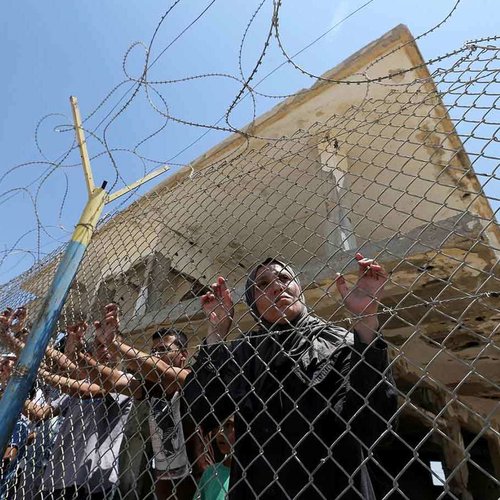
Since December, communities around the globe have battled COVID-19 (a.k.a the Novel Coronavirus). The virus is causing mayhem and turning the world into a Hollywood end-of-world scenario–exhausting health professionals and stealing lives (5,122 as I write this). But here in Gaza, people are almost satirical about the pandemic threatening the world’s public health and economy. For example, Fadel Suleiman quipped on Facebook that the Gaza Strip is besieged to the point that “the coronavirus does not know how to enter.”
For many of us here, the pandemic so far has been nothing more than the everyday struggle to obtain essential medical supplies as basic as bandages and oxygen canisters. Remember, it was five years ago that the United Nations predicted Gaza would be uninhabitable by 2020 (ironic, since this could be the year when the virus finishes us off). With unemployment and poverty rates now exceeding 75%, Gaza long has been uninhabitable by most definitions. Furthermore, the world makes it difficult for Gazans to protect ourselves from new dangers. Our understaffed and undersupplied hospitals can barely keep up with the demand of a growing population of 2 million Palestinians—many of whom are undernourished or still recovering from the ravages of war and injuries incurred during the Great Return March protests. During my last encounter with a hospital, it had no antibiotics or even painkillers to give to patients who couldn’t afford retail prices in pharmacies, even though they are much lower than in the West.

The Israeli siege and the Palestinian Authority’s cuts in the budget for Gaza—the result of Fatah’s desperate attempt to flush out its political rival, Hamas—are combining to exacerbate the crisis. Although the siege makes Gaza one of the places most protected from the virus, it also means it could be one of the hardest-hit when it does arrive. Gaza is far from ready to face and deal with a new public health challenge.
At the same time, our isolation has ramped up, even though no cases have been found in Gaza yet. Israel began tightening the noose by requiring Palestinians to produce a passport before exiting, despite the fact that a trip to Israel or the West Bank is not international travel. And now, travel in and out via Rafah (Egypt) or Erez (Israel) has been more severely limited than usual. It already was routine to require rarely approved permits before being allowed out via Erez. In addition, travelers long have been permitted to carry only duffle bags (no suitcases with frames or wheels), one smartphone and one pair of shoes. (Explain that!) Everything else has been banned, based on a fluid excuse of “security threat.” Now, reports Gisha, exit from Gaza will be further limited to patients seeking urgent medical treatment and their companions, Palestinians with Israeli citizenship, Palestinian West Bank residents seeking to return to the West Bank, “exceptional humanitarian cases,” and foreign nationals. Only foreign nationals and Palestinian residents of Gaza will be permitted to enter the Strip, subject to special coordination with Israel. The approximately 6,000 Gaza residents with “trader” permits will not be able to exit the Strip to work and conduct business in Israel and the West Bank.
On Friday, March 6, the Palestinian Authority’s Mahmoud Abbas, which governs the West Bank, declared a state of national emergency for 30 days. Thirty COVID-19 infections have been diagnosed there so far–all in Bethlehem, except one in Tulkarem. Jordan followed his lead by announcing March 10 that it would close the only passageway for Palestinians between the West Bank and Jordan as a precautionary measure.

Gaza still has no cases of its own, but Hamas has been spooked enough that it’s taking preventive steps. For example, travelers from hard-hit areas coming through Rafah were quarantined until the crossing was closed altogether.
Ahmed Alsalhi, an UNRWA teacher of English, also called for a school break for students and teachers. “A classroom has around 45 pupils, windows are closed to keep the cold and the noise out; the door is closed to prevent the reflection from the sun on the board; student-student, student-teacher and teacher-teacher interaction is extensive; students do not wash their hands after going to the toilet; and they have a habit of spitting and other unhealthy practices unknown to the decision-maker. I support a break until the summer’s heat kicks in with compensating classes accordingly,” Alsalhi posted on Facebook.
Alsahi’s advice was followed…All schools are now closed in Gaza for a month.
Yet others in Gaza are not taking the virus seriously or think of it as a minor distraction. Lana Hijazi, a Palestinian filmmaker, said in a post: “Prior to the corona situation, some people were already financially challenged; some were scraping their livelihood from garbage containers. Cleaning and sanitizing products? Those are not even on their mind … #contemplate.”
Others see comedy in the situation. Mahmoud Alhirthani, a professor of translation studies, posted: “Those who would send you a wedding invitation now: What are they trying to tell you?”
My observation: Maybe this is a time when more people around the world finally will empathize with Palestinians in Gaza. European and now even American cities are being placed on lockdown, following in the footsteps of China, Iran and Korea. As those cities and countries are restricted and ghettoized, and their health care systems are stressed and overwhelmed, we say: “Welcome to our world.” If this is not a time for solidarity and compassion with the Palestinian people, I wonder when is?
A slighty different version of this story first appeared on the website of Canada Talks Israel Palestine.











